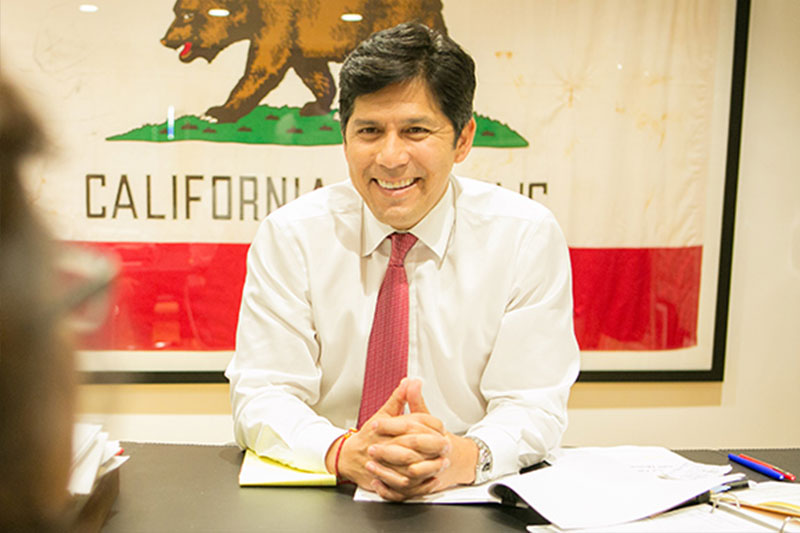Californian lawmakers wrapped up work for the year two months ago, but the state Senator Kevin de Leon isn’t resting easy. A torrent of sexual-harassment allegations in the state Capitols started raining down on top of Democrats in Sacramento just 48 hours after de Leon announced his own attempt to challenge Senator Dianne Feinstein for her seat.
While de Leon has not been accused or directly implicated in any of the impropriety in the growing sexual harassment scandals, as a president pro tempore, de Leon did nothing that was too concrete to change what powerful Californian political women described as a pervasive, long-standing climate of sexual harassment in the state capitol.
The national firestorm over recent sexual harassment accusations has ripple effects in the political races across the country, including de Leon’s efforts to oust Feinstein from the seat she has held for more than 25 long years.
De Leon further argues that the 84-year-old Feinstein — first elected in 1992’s so-called Year of the Woman— which no longer represents the progressive makeup of the state’s Democratic Party and has never challenged President Trump’s policies aggressively enough this year.
De Leon was counting on a wave of severe anger against President Trump in Californian to help them sweep him into the Senate. However, he never did foresee a state sexual harassment scandal stopping that momentum just as his campaign was ramping up.
In early November, de Leon moved out of the Sacramento apartment that he had shared with one of the lawmakers who were accused of inappropriate behavior with interns, Senator Tony Mendoza, also a Democrat.
De Leon has said that he knew nothing about the allegations of the Mendoza’s inappropriate behavior with the interns. Some of the accusations had involved activity that took place at the apartment, literally hitting de Leon at home.
The Democratic senator’s role was under the scrutiny earlier this month when a fired Senate staffer who had previously complained about the inappropriate behavior by Mendoza, who had been her former boss, provided a timeline that had appeared to contradict one de Leon provided.
A trio of the Mendoza aides reported the alleged harassment to the Senate officials several times in September before providing the additional details in a meeting during Sept. 22, according to an attorney for the staffers. During that meeting, they were handed a letter firing all three of them.
The letter was written on the Rules Committee letterhead bearing de Leon’s name, raising more of new questions about whether de Leon authorized their firings or knew more about the prevailing issue than he has so far publicly disclosed.
Secretary of the Senate Daniel Alvarez, meanwhile, had contradicted that story, while claiming the employees were fired before making the complaints against these senators.
The high-profile dispute led to a decision that was taken by de Leon to allow the outside attorneys to investigate the allegations of misconduct—a break from the state legislature’s longtime practice of self-policing alleged lawmaker misconduct.
“The people who work here and the public we serve must have complete confidence that no public official is above the law or our strict zero-tolerance harassment policies,” he had said in mid-November. “Those who violate these policies will be held to account—swiftly and justly.”
It’s a strong statement, but by convincing voters, he bears no further responsibility for the current firestorm.
“It cuts a lot of ways in this race,” Bill Whalen, a political analyst and research fellow at Stanford University’s Hoover Institution, said.
“If I’m Feinstein, I’m trying to lift the rug on the scandal in the state capitol to figure out why it happened and whether de Leon was in any way responsible,” said Whalen, who has also served as a chief speechwriter and public affairs director for former California Governor Pete Wilson.























